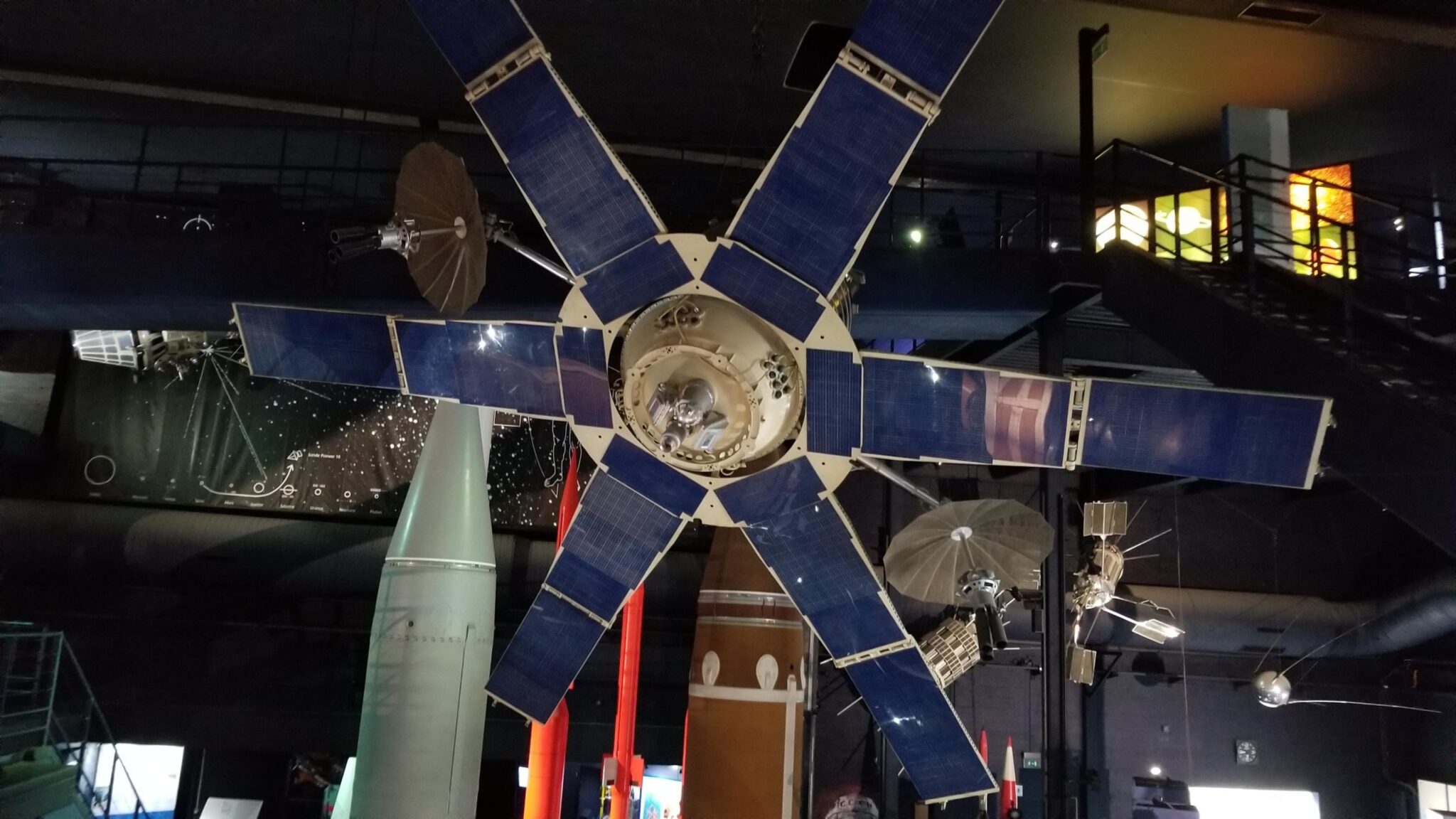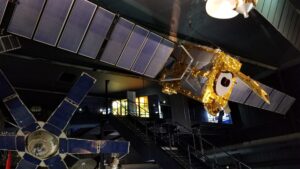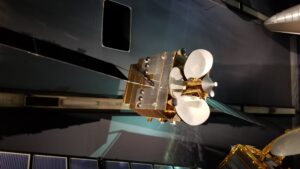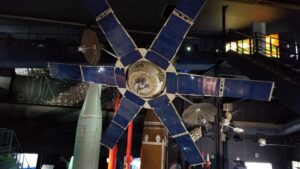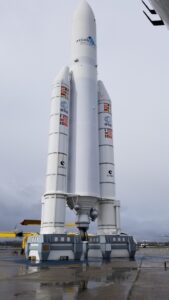Last week, space industry innovators and decision-makers from around the world met at the Air and Space Museum in Le Bourget for Paris Space Week 2020. During two fruitful days, commercial, technical and institutional actors of the space sector gathered to present their latest innovations and develop new business opportunities. Over 500 companies and institutions were present in the Concorde hall of the museum, allowing the participants to tour the supersonic planes between meetings and presentations.
The conference invited active participation by providing meeting opportunities to explore potential for project development, organized in parallel with high-level presentation panels. These discussions focused on the latest innovations in space, such as orbital debris mitigation solutions with a German start-up, Okapi, working on space situational awareness solutions for satellite operators, and a local project from Virginia Tech University, Inspirefly, developing space proof screens via a content cube that would bring selfies to outer space.
In addition to meetings and panels, the conference hosted two challenges: the Paris Space Week Innovation challenge, and the ESA BIC challenge. Selected start-ups were given the opportunity to pitch their ideas in front of a jury composed of representatives from major space actors such as ESA and Lockheed Martin. The ESA BIC challenge winner, Yuri, is a start-up that is enabling microgravity experiments. They offer a tailormade service to launch experiments in outer space, monitor data, and bring the experiment back to Earth. The Paris Space Week innovation challenge was won by ConstellR, a German company that is developing high definition land surface temperature monitoring, with diverse applications mainly for agriculture but also for urban planning.
Discussions during presentations and round tables mainly focused on new ways to access and use space from a business point of view. The key account round table was composed of Harold Van Den Sossche, director of industrial policy and supply chain management at MBDA, Stephen Eisele, Vice president of business development at Virgin Orbit, Martin Lee, Procurement (TOPS) at Airbus Defense and Space, and Stephen Gibson, head of civil space at Lockheed Martin. They covered multiple topics from the latest launch solutions to the militarization versus weaponization of outer space, underlining the fact that space has always been related to the military sector.
Current legal issues were also on the agenda. Anne-Solène Gay and Numa Ismar from Bhering Law firm presented on the importance of encompassing a legal approach for space actors in their strategy. The lawyers underlined the need for companies to take into account general corporate obligations, including competition law and intellectual property protection, as well as specific requirements related to the space industry, such as adequate insurance or space object registration.
Space Debris mitigation was a recurrent topic at the conference. Anton Fisher, CEO of FEV, presented on the implication of the new space debris mitigation standard ISO 24113. He noted that, although those standards were based on a voluntary adhesion, more and more countries were mandating them, leading to a need for companies to take those standards into account and implement measures to ensure their mission will limit the creation of new space debris.
LMI advisors took an active part in this conference, meeting with various participants including a law firm, start-ups, and investors, fostering new strategic partnerships. Paris Space Week fulfilled its mission of putting together actors of the space sector and presenting the latest innovations in the industry.

